

Supporting a “portfolio of livelihoods” in the Solomon Islands
May 30, 2024
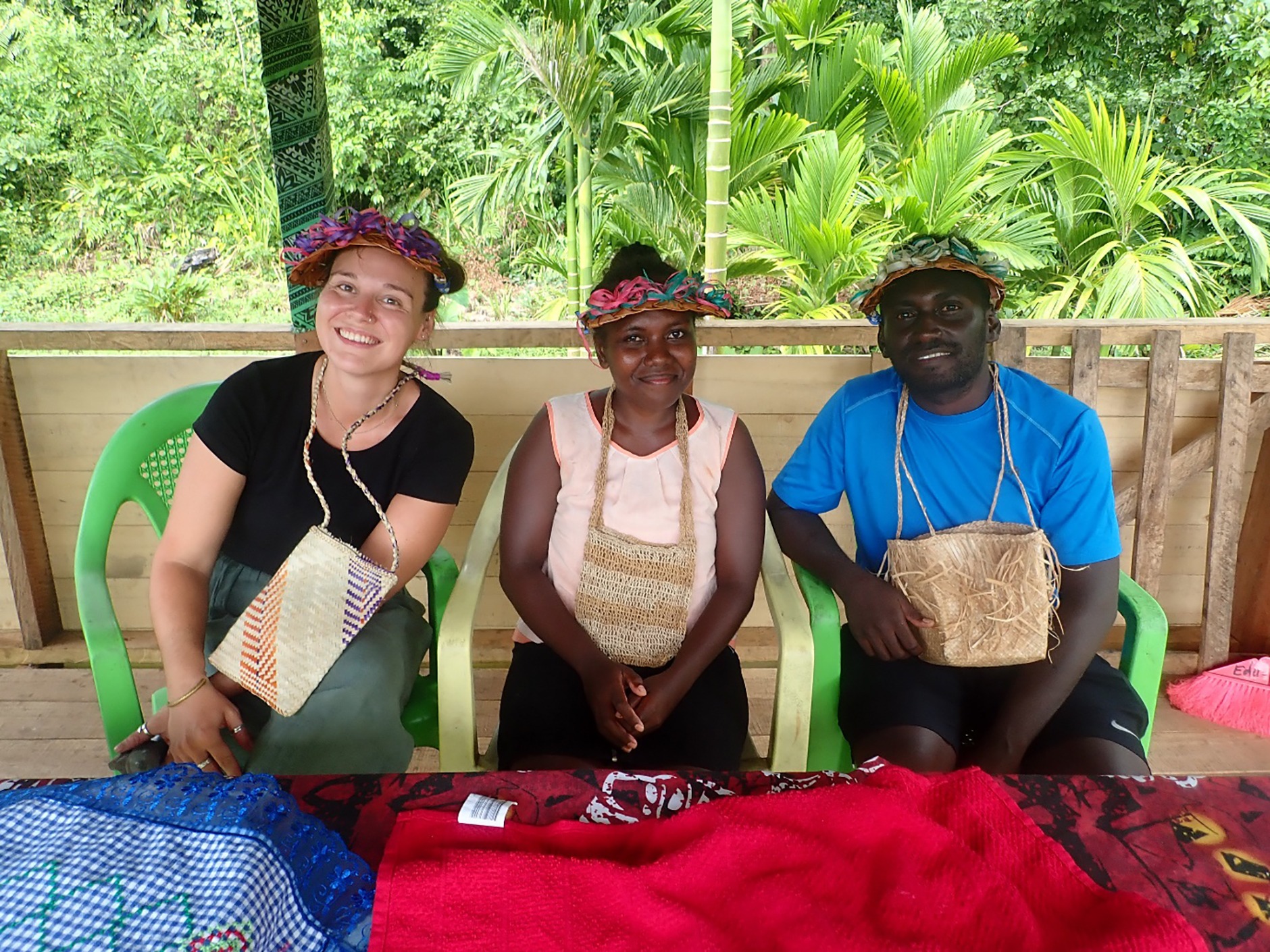
We’ll be announcing our 2024 Student Awards soon – just one way we support and encourage the next generation of Australians into study, careers and volunteering in international agricultural research.
The awards are funded by our State and Territory Committees and made possible by organisations including ACIAR, international centres, Australian and overseas universities and NGOs who host our awardees.
It’s great to hear from our awardees after their return. Bethany Smith from James Cook University is one of the last of our 2022 cohort, to travel for her award. She recently went to the Western Province of the Solomon Islands for her research as part of an ACIAR funded project ‘Spatially Integrated Approach to Support a Portfolio of Livelihoods’ (SRA FIS/2020/111). She shares her experience below.
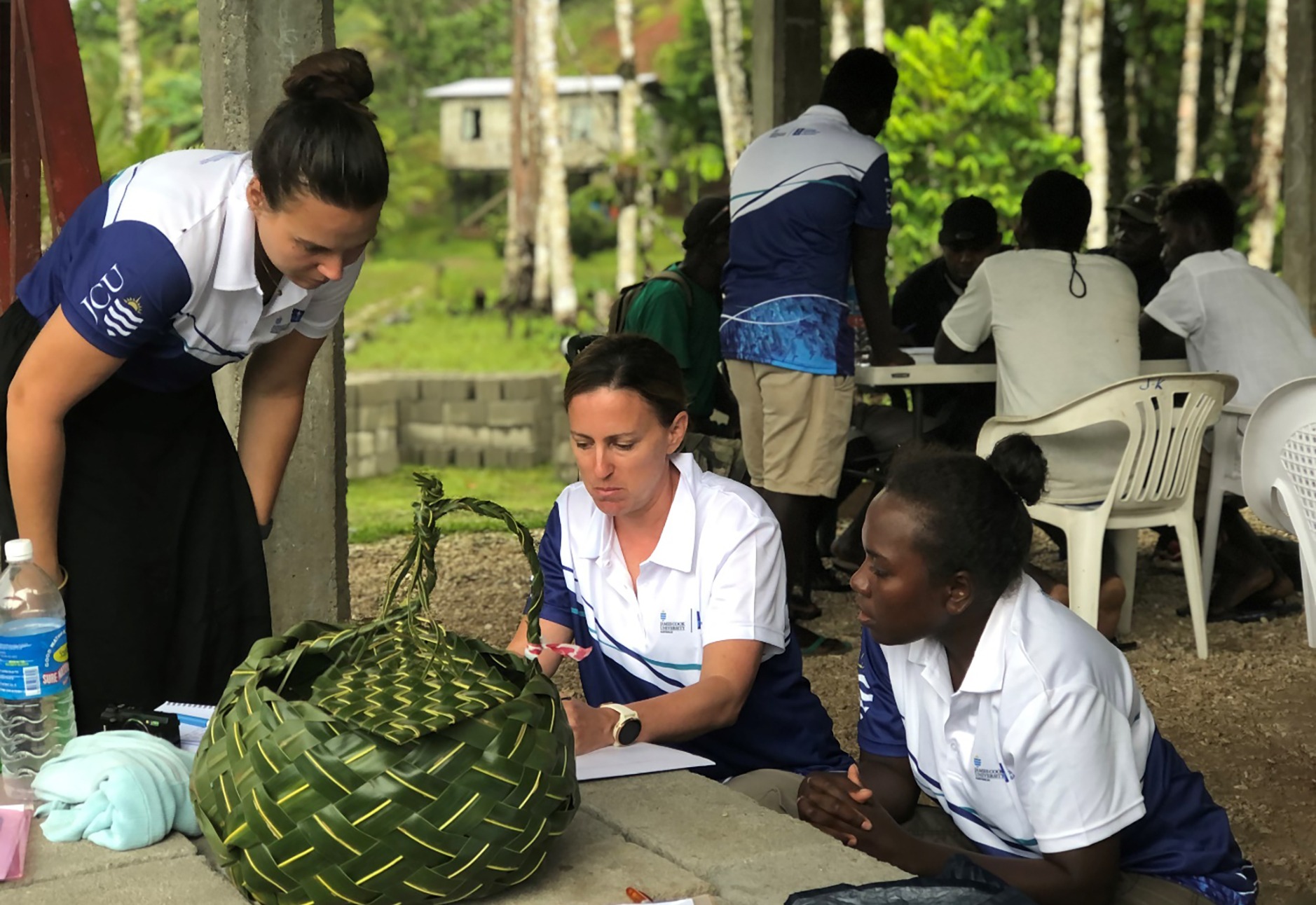
Coastal areas in Solomon Islands, like many Pacific locations, face a complex array of challenges. These coastal communities are characterised by diverse and interacting activities and actors. This includes fishing, farming, aquaculture, logging, palm oil, tourism etc., which all compete for limited natural resources. These activities are threatened by many outside influences such as climate change, global market trends, trading interests, local resource use, customs, and practices.
Recognising the need for a holistic multi-sectoral approach to livelihoods planning, the Australian Centre for International Agricultural Research (ACIAR) funded the ‘Spatially Integrated Approach to Support a Portfolio of Livelihoods’ in Western Province, Solomon Islands explained Bethany.
The project was guided by four main objectives:
- to develop an integrated risk-based approach to livelihoods planning,
- foster governance processes and partnerships to sustain this approach,
- build scientific capacity among local stakeholders, and
- provide capacity development to support partner communities.
It also had a particular focus on promoting fair societies, sustainable natural resource use, and resilient livelihoods in coastal communities.
“Supported by the Crawford Fund grant, I participated in knowledge sharing and dissemination related to the project’s risk-based participatory approach to integrated livelihoods planning,” said Bethany.
“Results centred around a Livelihoods-Based Risk Profiling Framework (LRPF) which identified local risk factors in coastal communities (comprising my PhD thesis), and national open-access spatial layers of key risks related to resource exploitation and climate change,” she said.
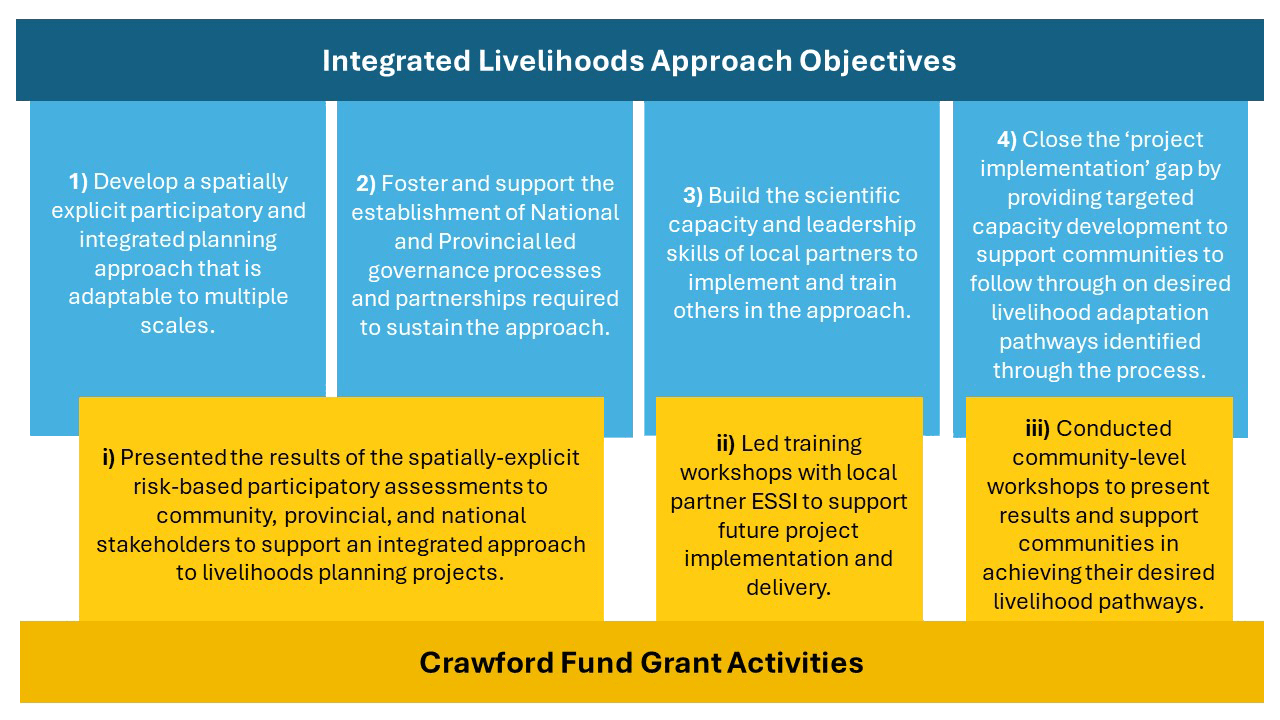
“At the governance stakeholder workshop, we presented the overall outputs of the Integrated Livelihoods Approach to stakeholders from partner communities, and provincial and national government. I presented my PhD thesis results for workshop attendees and demonstrated the value of the approach as an integrated tool for livelihoods planning,” said Bethany.
A training workshop was held with Ecological Solutions Solomon Islands (ESSI) following a ‘train the trainer’ format, supporting staff members in implementing and delivering outputs from the Integrated Livelihoods Approach.
The final activity supported by this grant involved partner community workshops communicating risk-based participatory assessments to our three partner communities in Western Province, Solomon Islands. The outputs of these assessments were presented as livelihoods risk profiles for each community, identifying the main social, economic, and environmental factors that drive risks to local livelihoods. These risk profiles were translated into educational posters in Solomon Island Pijin. Each community was additionally provided with a detailed risk profile report.
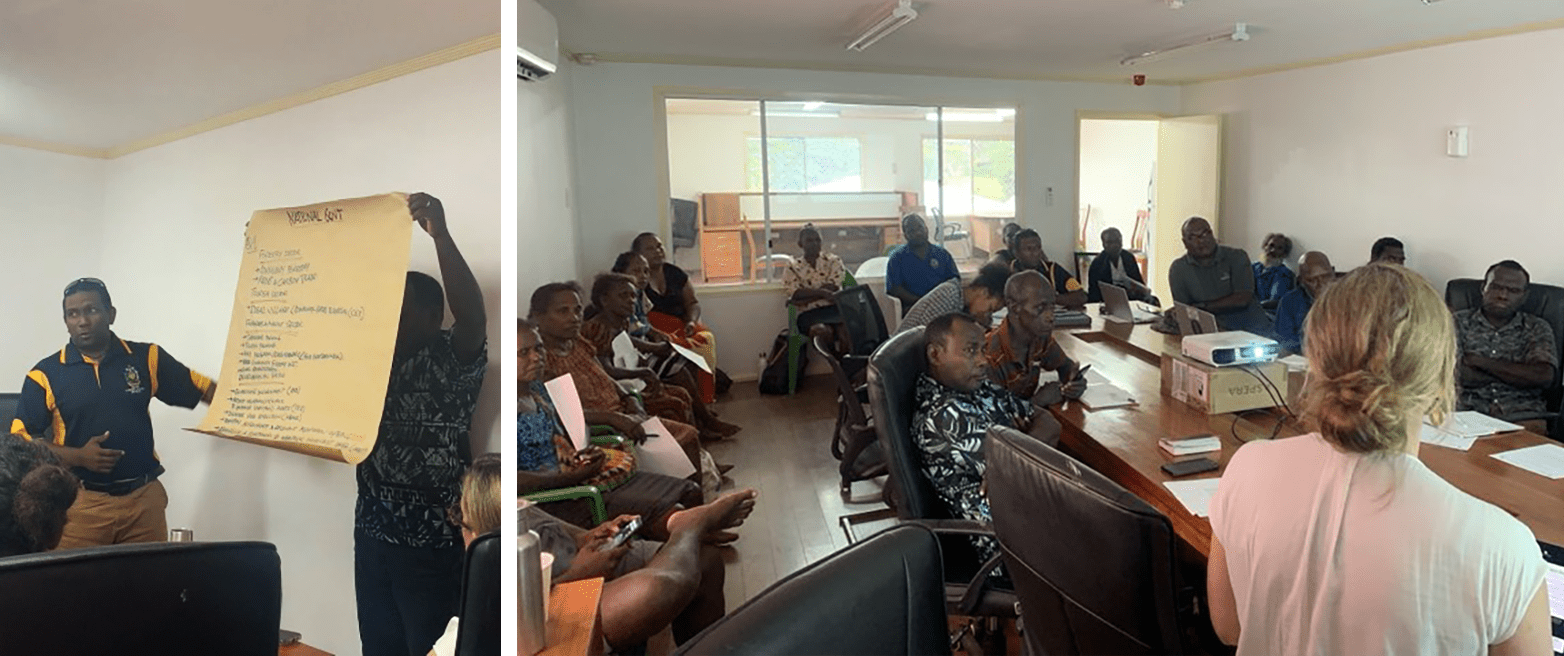
The integrated livelihoods approach provided valuable insights into the risk drivers that influence rural livelihoods in Western Province, Solomon Islands. The approach brought to light the intricate interplay between climatic change (e.g., sea level rise, temperature change and rainfall variability), and non-climatic challenges (e.g., resource exploitation) which often compound to impact local livelihoods. This was particularly evident in rural coastal areas, where communities heavily depended on natural resources for essentials like water, food, shelter, energy, and income.
The approach also highlighted the pivotal role of social and economic factors in addressing risk. For example, factors such as community cohesion, and economic opportunities emerged as crucial in adapting to the impacts of climate change.
“The insights gained from the integrated livelihoods approach can support livelihood planning projects in Solomon Islands. By identifying the intricate nature of risks impacting coastal livelihoods, the approach offers a nuanced perspective that is crucial for effective planning and livelihood planners in Solomon Islands can devise more informed and integrated adaptation strategies that address the divers needs and vulnerabilities of communities. Ultimately, this can contribute to the development of resilient livelihoods that are capable of thriving amidst changing local conditions,” said Bethany.
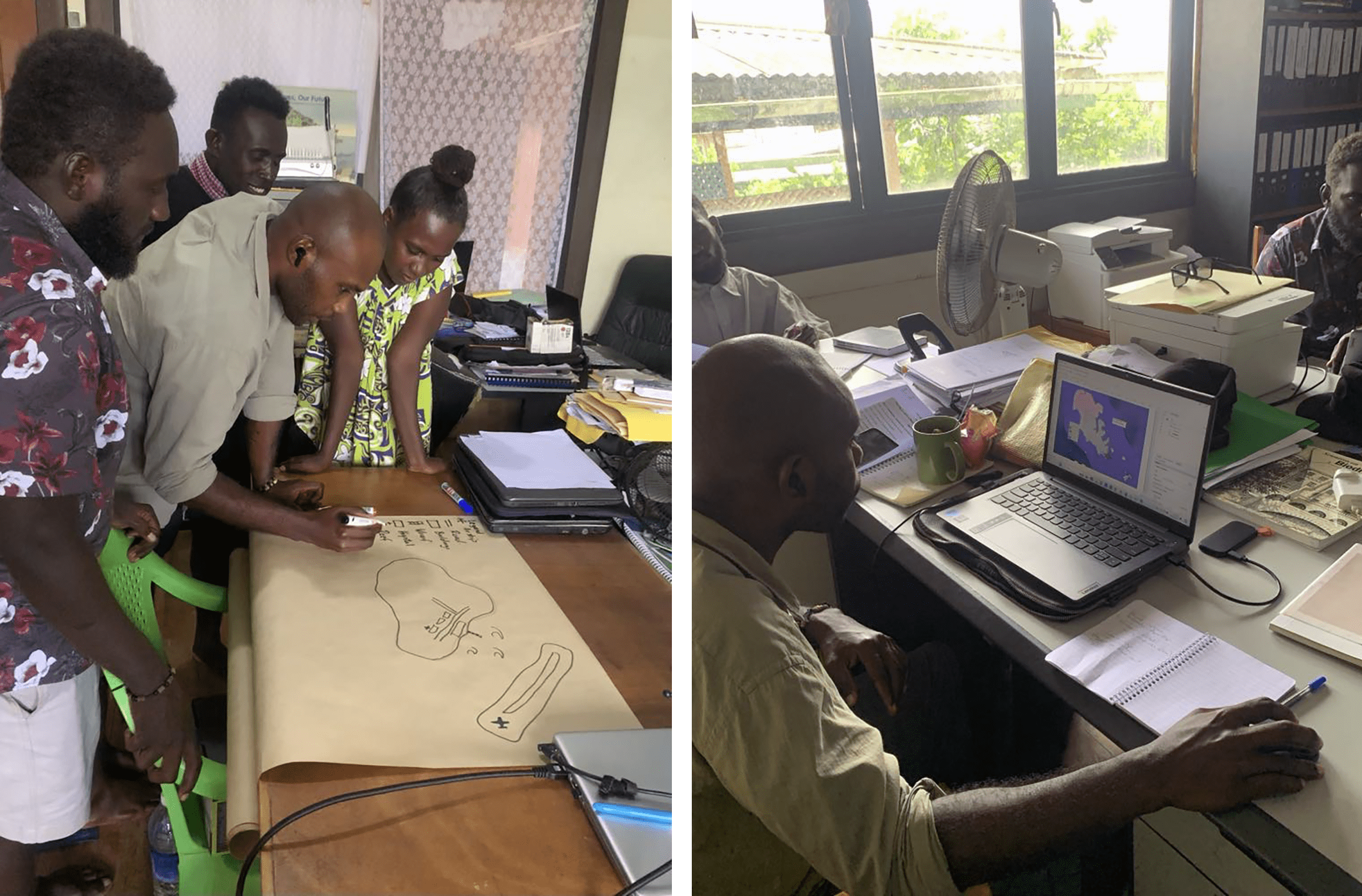
“Beyond the Solomon Islands, the project’s findings and methodologies could also benefit Queensland, helping rural communities plan for resilient and adaptable livelihoods amidst global change,” she said.
“The grant has given me the opportunity to translate my PhD research into practical outputs and communicate this information with the communities it aims to support,” concluded Bethany.
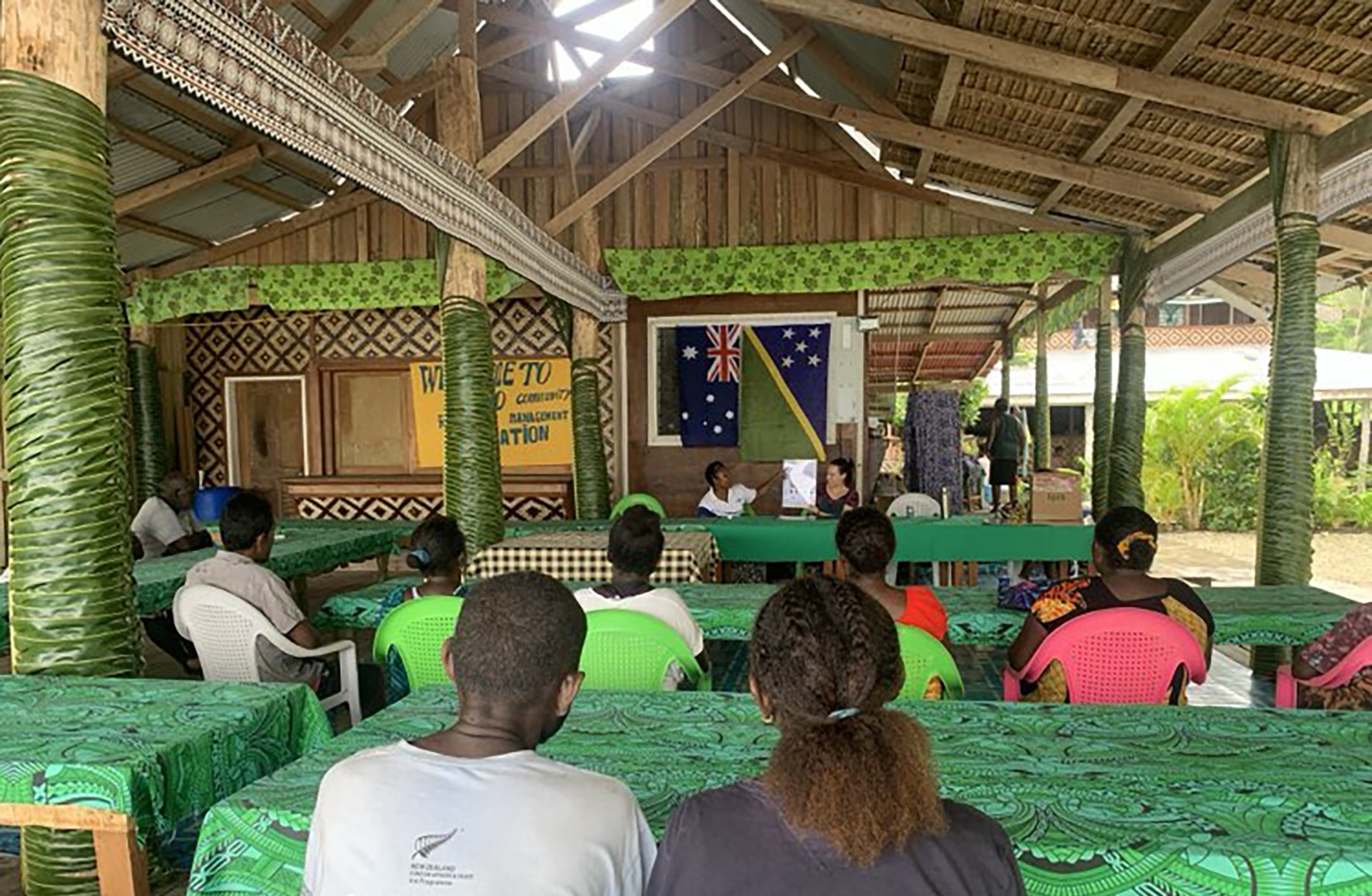




 0
0